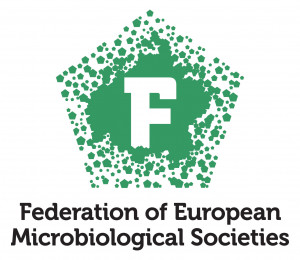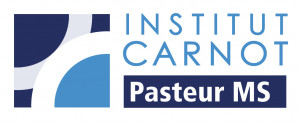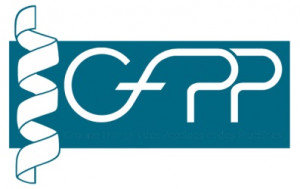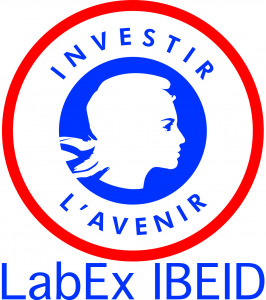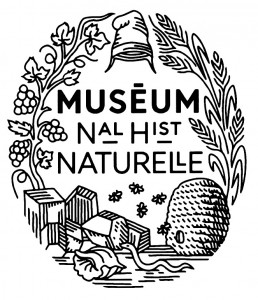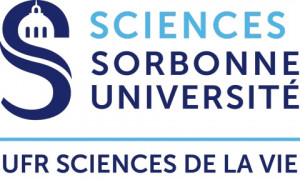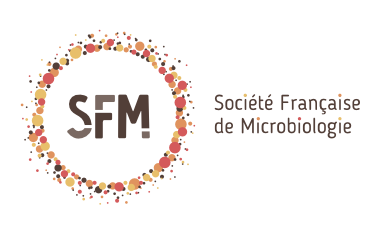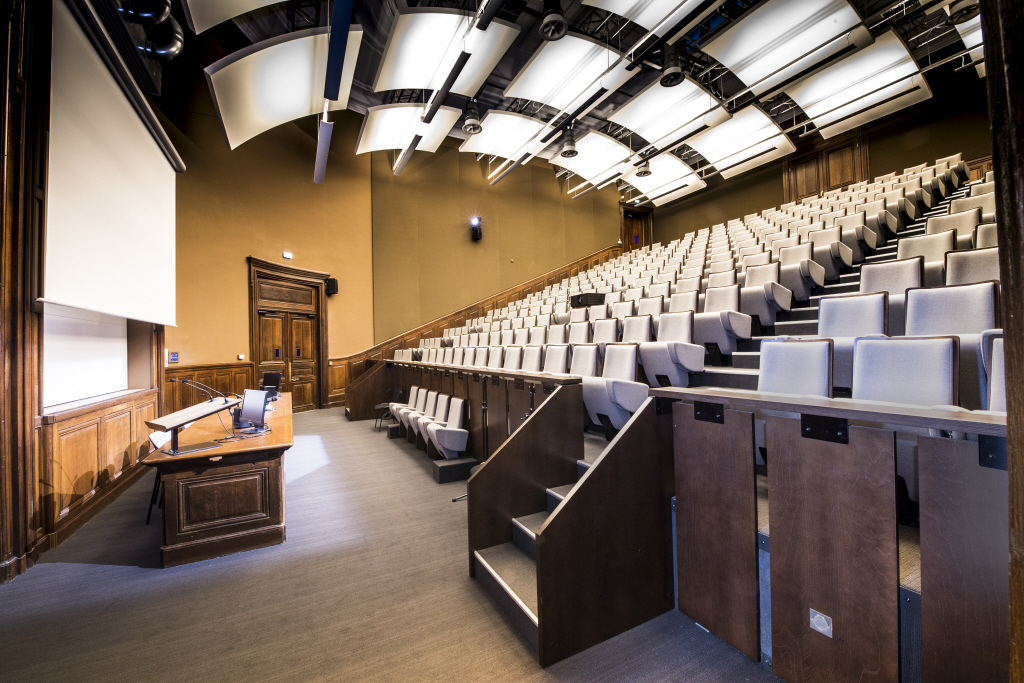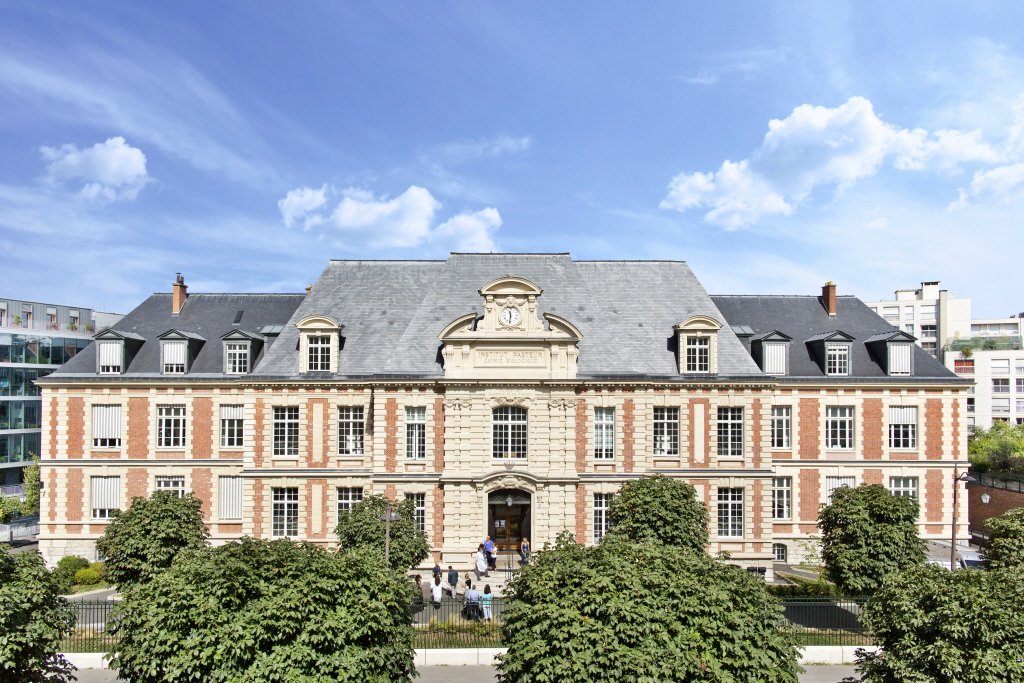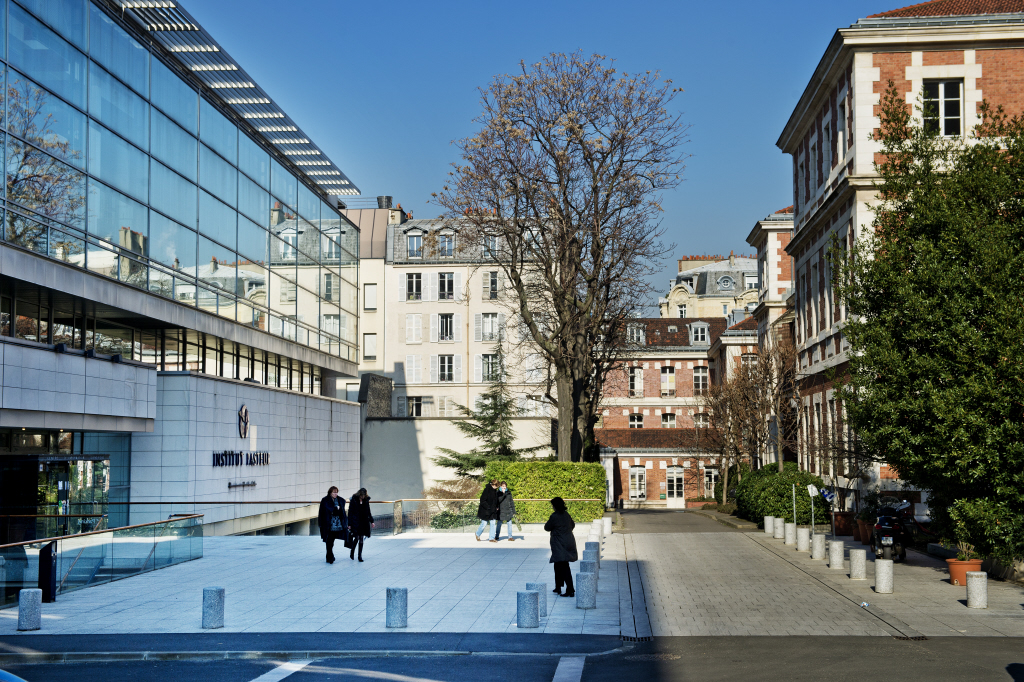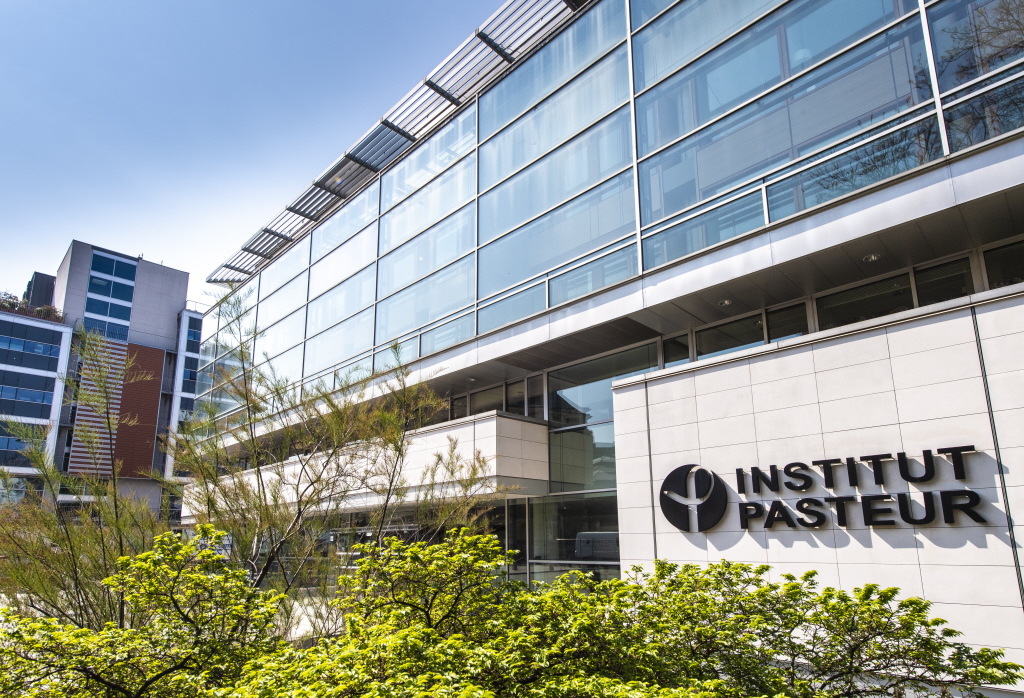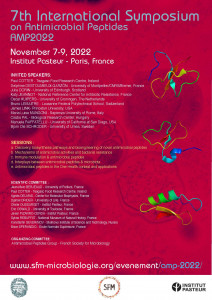Evenement
7th International Symposium on Antimicrobial Peptides – AMP2022
November 7-9, 2022
Amphithéâtre Duclaux – Institut Pasteur – Paris, France
Home
The continuous and ever-increasing resistance to antibiotics represents a major challenge to global public health. In this context, there is an urgent need to identify novel potential antimicrobials, to dissect their molecular mechanism(s) of action, and to characterize their function in the context of complex immune responses. Antimicrobial peptides represent a class of antibiotic molecules that display targeted activity against microorganisms, which are produced by living organisms as diverse as bacteria, fungi, plants, insects and vertebrates, and which can be as well artificially designed and synthesized.
AMP2022 will bring together the world’s leading experts in the field to discuss the most recent research advances on: a) the discovery, biosynthesis pathways and bioengineering of novel antimicrobial peptides, b) the mechanisms of antimicrobial activities and bacterial resistance, c) immune modulation by antimicrobial peptides, d) the interplay between antimicrobial peptides & microbiota, and e) antimicrobial peptides in the One Health context and applications. The 7th International Symposium on Antimicrobial Peptides is supported by the French Society on Antimicrobial Peptides (SF-PAM) and by the National Museum of Natural History which will participate to the organization and social activities of the Symposium.
Invited Speakers
Paul COTTER – Teagasc Food Research Centre (Cork, Ireland)
Delphine DESTOUMIEUX-GARZON – University of Montpellier (Montpellier, France)
Julia DORIN – Edinburgh University (Edinburgh, Scotland)
Katy JEANNOT – NRC for Antibiotic Resistance (Besançon, France)
Oscar KUIPERS – University of Groningen (Groningen, The Netherlands)
Bruno LEMAITRE – EPFL (Lausanne, Switzerland)
James LINK – Princeton University (Princeton, USA)
Maria Luisa MANGONI – University La Sapienza (Rome, Italy)
Csaba PAL – Biological Research Center (Szeged, Hungary)
Manuella RAFFATELLU – University of California at San Diego (San Diego, USA)
Bjorn Ole SCHRODER – Umeå University (Umeå, Sweden)
Program
Monday November 7th 2022
8h00 – 9h00 Registration
First Session
9h15 – 9h30 Opening Remarks
9h30 – 10h30 Keynote lecture: Bruno LEMAITRE (EPFL, Switzerland) ‘Layers of immunity: Deconstructing the Drosophila effector response’
10h30 – 11h00 Coffee break
Second Session: ‘Discovery, biosynthesis pathways and bioengineering of novel antimicrobial peptides I’
11h00 – 11h40 Oscar KUIPERS (University of Groningen, The Netherlands) ‘Various approaches for RiPPs engineering to obtain new antimicrobial peptides’
11h40 – 11h55 Talk selected from the abstracts: Ricardo BALTA-FOIX (Agrolimentary Technology Research Institute, Spain) ‘Host defense peptides-based recombinant proteins: effective antimicrobials against both bacterial and viral pathogens’
11h55 – 12h10 Talk selected from the abstracts: Johannes ECKERT (ETH Institute of Microbiology, Switzerland) ‘Exploring the natural diversity of acyltransferases producing gene-encoded lipopeptides’
12h10-13h30 – Lunch
Third Session: ‘Discovery, biosynthesis pathways and bioengineering of novel antimicrobial peptides II’
13h30 – 14h10 James LINK (Princeton University, USA) ‘Antimicrobial lasso peptides’
14h10 – 14h25 Talk selected from the abstracts: Sofie KRISTENSEN (Norwegian Institute of Life Sciences, Norway) ‘Can insight from bacteriocin-receptor interaction studies help design novel antimicrobial peptides?’
14h25 – 14h40 Talk selected from the abstracts: Clarisse ROBLIN (Molecular Sciences Institute of Marseille, France) Ruminococcin C, a promising antibiotic produced by a human gut symbiont’
14h40 – 14h55 Talk selected from the abstracts: Fleur RUIJNE (Groningen Biomolecular Sciences & Biotechnology Institute, The Netherlands) ‘Mimicking non-ribosomal peptides the ribosomal way’
15h30 – 16h00 Coffee break
Fourth Session: ‘Mechanisms of antimicrobial activities and bacterial resistance I’
16h00 – 16h40 Katy JEANNOT (NRC for Antibiotic Resistance, France) ‘Mechanisms of resistance to an old and a new antimicrobial peptide in clinical strains of Pseudomonas aeruginosa‘
16h40 – 16h55 Talk selected from the abstracts: Olivier CASPARI (Institut de Biologie Physico-Chimique, France) ‘Defensive AMP import and how it may have given rise to protein import during endosymbiosis’
16h55 – 17h10 Talk selected from the abstracts: Shaynoor DRAMSI (Institut Pasteur Paris, France) ‘Gallocin is an atypical two-peptide bacteriocin secreted by Streptococcus gallolyticus that kills phylogenetically-related species’
17h10 – 19h00 Poster Session / Wine & Cheese
Tuesday November 8th 2022
Fifth Session: ‘Mechanisms of antimicrobial activities and bacterial resistance II’
8h30 – 9h10 Csaba PÁL (Biological Research Center, Hungary) ‘Evolution of resistance against antimicrobial peptides in the lab’
9h10 – 9h25 Talk selected from the abstracts: Cédric ORELLE (Lyon University, France) ‘Identification of a two-component regulatory system involved in antimicrobial peptide resistance in Streptococcus pneumoniae’
9h25 – 9h40 Talk selected from the abstracts: William ZAMORA (University of Costa Rica, Costa Rica) ‘Insights into the effect of the membrane environment of the three-dimensional structure-function relationship of antimicrobial peptides’
9h45 – 9h55 Talk selected from the abstracts: Javier PIZARRO-CERDA (Institut Pasteur Paris, France) ‘Listeriolysin S, a bacteriocin from L. monocytogenes that induces membrane permeabilization in a contact-dependent manner’
10h00 – 10h30 Coffee break (Posters available)
Sixth Session: ‘Immune Modulation and Antimicrobial Peptides I’
10h30 – 11h10 Julia DORIN (Edinburgh University, Scotland) ‘Beta defensins as immunomodulatory peptides and relevance to obesity’
11h10 – 11h25 Talk selected from the abstracts: Constance AUVYNET (National Autonomous University, Mexico) ‘DRS-DA2N induces the death of both immune cells and bacteria by interacting with the membrane and disrupting it’
11h25 – 11h40 Talk selected from the abstracts: Guneet BINDRA (La Trobe University, Australia) ‘Evidence for an epididymal-specific, phospholipid-targeting human defensin in immunomodulation’
11h40 – 11h55 Talk selected from the abstracts: Julien DIANA (Institut Necker Enfants Malades, Paris) ‘Intestinal cathelicidin antimicrobial peptide shapes a protective neonatal gut microbiota against pancreatic autoimmunity’
12h00-13h00 – Lunch
Seventh Session: ‘Immune Modulation and Antimicrobial Peptides II’
13h00 – 13h40 Björn Ole SCHRÖDER (Umeå University, Sweden) ‘Complex interaction between AMPs, gut microbiota and the environment at the intestinal mucosa’
13h40 – 13h55 Talk selected from the abstracts: Oksana ISCHCHENKO (Dnipro State Medical University, Ukraine) ‘Levels of the human beta-defensin 2 and LL-37 in the sputum of children with cystic fibrosis’
13h55 – 14h10 Talk selected from the abstracts: Ali JAVED (Utrecht Faculty of Veterinary Sciences, The Netherlands) ‘Peptidomimetic chimeric antibiotic efficiently neutralizes LPS and bacteria-induced activation of Raw macrophages’
14h10 – 14h20 Presentation from Industrial Sponsors Andreas KUHBACHER (Aicuris, Germany) ‘Aicubator: a new way of collaboration in the field of anti-infectives’
14h20 Departure Towards the Natural History Museum
14h45 – 19h00 Social Activity: Visit of the Natural History Museum
20h00 – 23h30 Gala Diner
Wednesday November 9th 2022
Eighth Session: ‘Interplays between antimicrobial peptides & microbiota I’
8h45 – 9h25 Manuela RAFFATELLU (University of California at San Diego, USA) ‘A bacterial protease promotes pathogen evasion of host antimicrobial defenses’
9h25 – 9h40 Talk selected from the abstracts: Erica BONAZZI (Institut Cochin, France) ‘Microbiota modulation of human alpha-defensin HD51-9 is highly donor-dependent and protective against DSS-induced colitis’
9h40 – 9h55 Talk selected from the abstracts: Victoria STOPA (Luxembourg Institute of Science & Technology, Luxembourg) ‘Probiotics applications to build a beneficial space microbiota’
10h00 – 10h30 Coffee break (Posters available)
Ninth Session: ‘Interplays between antimicrobial peptides & microbiota II’
10h30 – 11h10 Paul COTTER (Teagasc Food Research Centre, Ireland) ‘Targetting specific components of microbiomes through natural and engineered antimicrobial peptides’
11h10 – 11h25 Talk selected from the abstracts: Noémie DE SAN NICOLAS (Université de Montpellier/IFREMER, France) Functional diversification of big-defensins & the shaping of oyster microbiota
11h25 – 11h40 Talk selected from the abstracts: Natalia RIOS COLOMBO (University Colege Cork, Ireland) ‘Assessment of the impact of bacteriocin-producing strains on a simplified human intestinal microbiota’
11h40 – 11h55 Talk selected from the abstracts: Séverine ZIRAH (National Natural History Museum, France) ‘Microcins: activity against antibiotic-resistant bacteria, stability and impact on colic microbiota’
12h00-13h00 – Lunch
Tenth Session: ‘Antimicrobial peptides in the One Health Context & applications I’
13h00 – 13h40 Maria Luisa MANGONI (University La Sapienza, Italy) ‘Bioactive peptides from Esculentin-1a: from discovery towards nanotechnologhy strategies to prevent and treat P. aeuroginosa lung and ocular surface infections’
13h40 – 13h55 Talk selected from the abstracts: Louise BENNET (Monash University, Australia) ‘Antimicrobial peptides released from human & bovine milk proteins’
13h55 – 14h10 Talk selected from the abstracts: Annabelle MATHIEU-DENONCOURT (University of Montreal, Canada) ‘Polymyxin B in the aquatic environment: proteomic, transcriptomic & phenotypic study in Vibrio cholerae’
14h10 – 14h25 Talk selected from the abstracts: Alexandra RAHMANI (ANSES – Technopole Brest Iroise – France) ‘Potential of marine strains of Pseudoalteromonas to reduce mortality induced by Vibrio harveyi in European sea bass’
14h30 – 15h00 Coffee Break (Posters available)
Eleventh Session: ‘Antimicrobial peptides in the One Health Context & applications II’
15h00 – 15h40 Delphine DESTOUMIEUX-GARZON (University of Montpellier, France) ‘Antimicrobial peptides in oyster health and disease’
15h40- 15h55 Talk selected from the abstracts: Lea MCHANTAF (St. Joseph de Beyrouth University, Lebanon) ‘Bactericidal activity of two antimicrobial peptides against multidrug- & extensively drug-resistant A. baumannii & P. aeruginosa
15h55 – 16h10 Talk selected from the abstracts: Christian KRANJEC (Norwegian University of Life Sciences, Norway) ‘An antibiotic-free antimicrobial combination to effectively inhibit the growth of bovine mastitis-associated bacteria’
16h15 Concluding Remarks
Committee
- Scientific Committee
Jean-Marc BERJEAUD – Poitiers University (Poitiers, France)
Paul COTTER – Teagasc Food Research Centre (Cork, Ireland)
Agnès DELMAS – Molecular Biophysics Center (Orléans, France)
Djamel DRIDER – Lille University (Lille, France)
Olivier DUSSURGET – Institut Pasteur (Paris, France)
Eric OSWALD – Digestive Health Research Institute (Toulouse, France)
Javier PIZARRO-CERDA – Institut Pasteur (Paris, France)
Sylvie REBUFFAT – National Museum of Natural History (Paris, France)
Brice SPERANDIO – IBENS (Paris, France)
Konstantin SEVERINOV – Waksman Institute of Microbiology (Piscataway, USA)
- Local Organizing Committee
Mohamed AMICHE – Sorbonne University (Paris, France)
Djamel DRIDER – Lille University (Lille, France)
Olivier DUSSURGET – Institut Pasteur (Paris, France)
Yannick FLEURY – Bretagne Occidentale University (Brest, France)
Katy JEANNOT – French National Reference Center for Antibiotic Resistance (Besançon, France)
Michael LAFOND – Molecular Sciences Institute (Marseille, France)
Brigitte LAMY – Imperial College (London, United Kingdom)
Yanyan Li – National Museum of Natural History (Paris, France)
Marc MARESCA – Molecular Sciences Institute (Marseille, France)
Annick MEJEAN – Paris University (Paris, France)
Javier PIZARRO-CERDA – Institut Pasteur (Paris, France)
Sylvie REBUFFAT – National Museum of Natural History (Paris, France)
Anne-Marie REVOL – Lorraine University (Vandoeuvre, France)
Aurélie TASIEMSKI – Institut Pasteur (Lille, France)
Julien VERDON – Poitiers University (Poitiers, France)
Severine ZIRAH – National Museum of Natural History (Paris, France)
Registration
| Registration fees |
Early fee 15.09.2022 | Regular fee |
| Non-member | 450 € | 550 € |
| SFM Member | 400 € | 450 € |
| Non-member student | 250 € | 350 € |
| SFM Member student | 200 € | 300 € |
| Gala dinner November 8, 2022 | 125 € | 125 € |
Abstract Submission
Deadline abstract submission : August 30, 2022 Septembre 15, 2022
Presentation of the abstract (Arial 10). The abstract text may not be longer than 500 words. Indicate the title, the names of the authors, the institutions – Please structure your abstract with the following items: Introduction, Objectives, Methods, Results, Conclusions.
Reviewing and selection process: All abstracts submitted will go through a peer-review process. If your presentation is accepted, the final decision will be carried out by the conference Scientific Committee. The conference Scientific Committee reserves the right to reject low quality abstracts, as well as those not pertinent to the themes of the conference. All presenting authors for oral and poster presentations will be notified by email in September 2022.
Posters: Abstracts selected for poster presentation will be displayed during the poster sessions. (cf conference program). Please note that the posters size should not exceed 1 meter (3.3 feet) high by 0.70 meter (2.4 feet) wide. (Magnets provided on site).
FEMS Grants
This meeting is selected by the Federation of European Microbiological Societies (FEMS) to offer grants for event participation for Early Career Scientists.
Eligibility
To apply for this grant, you would need to meet following requirements:
• be a member of a FEMS Member Society* or be recommended by such a member
• be an Early Career Scientist**
• be an Active Microbiologist
• be presenting author at the meeting (oral or poster)
*Find out if your society is a FEMS Member at https://fems-microbiology.org/member-societies/ **These are active microbiologists who obtained the highest academic degree – Bachelor, Master or PhD – less than five years prior to the application deadline date, or are a Master or PhD student. Periods of maternity/paternity leave, special leave or illness do not count toward this definition.
Application process
Please send your application before 30.08.2022 to the following address: comptabilite@sfm-microbiologie.org
Additional benefits
As a FEMS Member Society member, you can:
• benefit from the grant provided for this meeting (see Eligibility above)
• apply for a range of other FEMS Grants
• benefits/discounts off the registration fee for FEMS Congresses/Conferences
• benefit from a 25% discount off a selection of Oxford University Press books
Information
ACCESS TO THE MEETING VENUE
Institut Pasteur, Amphithéâtre Duclaux, 205 rue de Vaugirard, 75015 Paris / Metro ligne 6 : Pasteur
Sponsors
If you want to sponsor this event, please contact the SFM
36 avenue Jean Moulin
75014 Paris
Tél. 09 63 04 70 73
comptabilite@sfm-microbiologie.org

